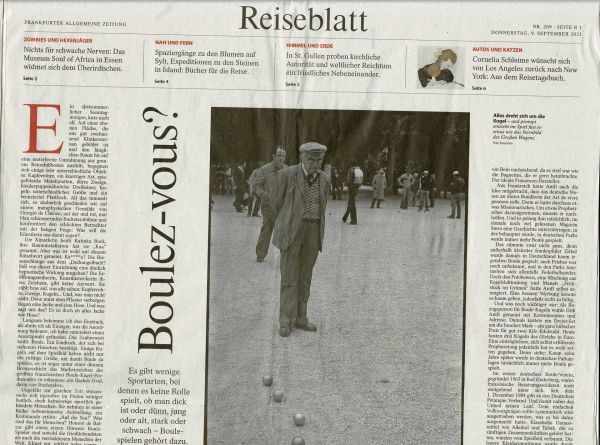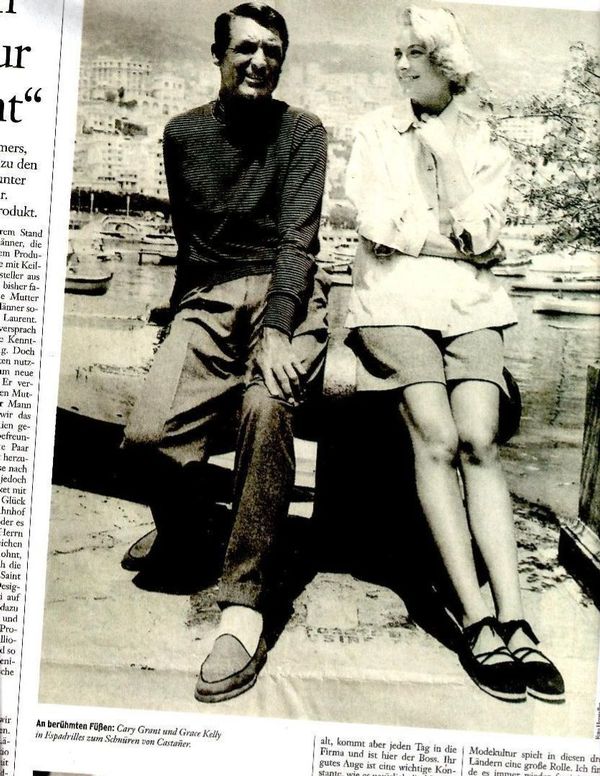German Newspapers
Few things motivate the writer in me like German newspapers. They are factually informative, cleverly written, and reflect an educated perspective. Each morning in Germany, I wake up as early as I can, in order to get a copy of choice newspapers before they sell out. I cannot think of a better way to spend the morning than to drink tea and read Germany newspapers. Unlike the US, where newspapers dumb down their copy in order to not intimidate or offend low-brow readers, German newspapers rejoice in haute culture and impress me with their knowledge of events and trends in the US, as well as in Germany. They also have a reflective spirit about German history. Over the years, I have collected articles to add to my periodical library—perhaps a thousand of them.
The Gnaw of the Wild
On this trip, I thumbed through the 31st July issue of Der Spiegel in the regional library of Erfurt and found a story that hit close to home. A man named McNeely lives with his family along the Edisto River, near Ravenel, South Carolina. He watched his children playing outside and spotted a large alligator lurking nearby. McNeely did not like the way the alligator eyed the children, so he shot it. How in the world could Der Spiegel get hold of such a story, taking place on the other side of the Atlantic Ocean?
McNeely did not like to waste fresh alligator meat, so he dragged the carcass to the bed of his truck with a come-along and took it to the local butcher in Ravenel, a man named Cordray. He asked the butcher to slaughter the 450 lb. animal and make alligator steaks, sausage, and jerky. In the photo, you can see that Cordray had to hoist the carcass with a fork-lift.
Cordray slit open the alligator's stomach and found the remains of five dog collars. The dog collars had phone-numbers of them. He dialed each in turn and found that one dog-owner had lost his dog 20 years ago. On that basis, Cordray estimated the age of the alligator at 25 years. He kept its huge head to mount it in his taxidermy shop.
The article continued that an alligator doesn't generally eat people, only when they try to stroke its hide or take selfies with it. The editor of the local Charleston newspaper told me of an alligator that had the remains of twenty dog-collars in its stomach, including one pooch that had belonged to a friend of his.
The next article appeared in the 9th September issue of the Frankfurter Allgemeine Zeitung, one of the most widely-read newspapers in Germany, and for good reason. The title of the article "Boulez-vous?" is a play on the French phrase Voulez-vous? or "Do you want?" In this instance, the old man with the Gauloises caporal in his mouth asks the question Voulez-vous jouer au Boule? or "Do you want to play a round of bowling?" The caption beside him reads, "There are few sports where age, fitness, and physical strength do not play a role. Bowling is one of those."
The next article, "Prima, mein Fressen piept!" appeared on 21st November 2014 in Die Welt, another national newspaper. The title translates roughly to "Hooray, I can hear the fish peep!" Scientists had attached radio transmitters to the fins of fish to help them track the fishes' migration. Unfortunately, seals who hunted the fish could also hear the UVF peep. As a result, the scientists found most of the transmitters in the stomachs of the seals. I thought the article fit nicely with the story about the dog-eating alligators.
I have three older sisters and remember that Espadrilles came into vogue when I was growing up, because my sisters wore them. They were basically sandals that only French peasant women wore; but when actress Grace Kelly wore them in the film To Catch a Thief, Espadrilles entered the big-time fashion market. Co-star Cary Grant sits beside Kelly in the photograph.
Interestingly, Grace Kelly's character Francie in To Catch a Thief says that "Palaces are for royalty. We're just common people with a bank account." But Espadrilles did not remain a peasant staple for long, not after she put them on. Grace Kelly is the loveliest woman who ever lived. She had enough personal cachet to promote anything she touched. If she wore Espadrilles, then every woman had to have them.
One of my sisters has always admired the Russian writer Leo Tolstoy, author of War and Peace and Anna Karenina. She also admired the porch-railing shown in the photograph at Tolstoy's ancestral home Yasnaya Polyana 120 miles from Moscow. Its alternating human and animal motifs confirm something fundamentally decent about the man. After she saw Tolstoy's porch-railing, my sister decided she had to have the same porch-railing at her home in North Carolina.
This interesting article appeared in the Die Süd-deutsche Zeitung, another of Germany's national newspapers, on 10th November 2010, marking the 100th anniversary of Tolstoy's death, The photo shows Tolstoy as he always imagined himself, dressed as a typical Russian peasant, which he clearly was not. His perception of downward mobility as a virtue interested me.
In 1999, the nations of Europe converted their currencies to just one currency, the Euro. The plan to do this had started as early as the late 1950s. After the Berlin Wall came down in 1989, and after the collapse of the Soviet Union, the nations of Eastern Europe also expressed interest in entering the "Euro-Zone." Everyone accepted the wisdom of having just once currency. No need for conversion-tables or rip-off type Cambio stations. A single currency would cause trade and tourism to sky-rocket.
But the use of the Euro came with certain fiscal responsibilities, which several of the Euro-nations did not follow, namely Spain, Portugal, Ireland, and Greece. Greece especially took advantage of the Euro-system for its own benefit, accruing an unacceptable level of national debt, and showing no particular urgency about paying down some of it.
The clever journalists at Die Süd-deutsche Zeitung made light of this terrible situation, showing a Karl Marx Almighty bringing down the Storm of Heaven onto the European nations and their Euro umbrellas—Marx flashing a peace-sign to signal his usual humanitarian intentions.
_________________________________________________________________________________________________________________________________________________________________________________________________________________________________
The final selection comes from Die Zeit, yet another nation-wide newspaper in Germany. Die Zeit even had an American edition that lasted into the 1990s. The article title, "Wir Tugendterroristen," translates into English "We Virtuous Terrorists," and appeared on 8th November 2012. The clever photographic collage shows diligent journalists ready to unleash the next media-sensation--a Lady-Gaga grade singer, or outing a politician caught with a prostitute.
We have conditioned ourselves to dauernden Empörung, a "fixed state of outrage," says the author Bernhard Pörksen—a continous, angry high fueled by our sensationalist media. Internet junkies stay awake nights, searching Google high and low for the next scandal. Pörksen quotes German blogger Sascha Lobo, who describes blogging as a Spektakelmaschine in Echtzeit—a spectacle-maker in real-time.
Who causes this? He asks rhetorically, this Internet demonization? The rationalization, he says, is the need for "Transparency." But the question of who does what and for what reason never gets its day in court. Pörksen says that only the perpetrators themselves escape the need for transparency. Efforts to out them are verbaut, or obscured.
The curious thing for me is that both Pörksen and Lobo write as Leftists; inferring that the scandal-machine has right-wing origins, just the opposite of what the right-wingers themselves believe. The inimitable Rush Limbaugh went on a tear from time to time about left-wing bloggers amplifying every Republican misstep, or misrepresenting it.
In any case, the author has a good point. The scandal-mongers themselves remain below the radar, making life hell for the rest of us. In a sense, the photograph misleads the reader into thinking that professionals create the scandals—journalists and politicians. In fact, the bloggers do. Just average guys like you and me, manning a computer.








